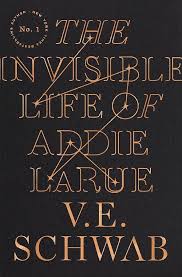Chapter I
byChapter I begins in the quiet aftermath of a rainy night in New York City, September 5, 2014. The young man wakes up alone, the echoes of an unsettling dream still clinging to his mind. The world outside his window is bathed in the bright September sunlight, a stark contrast to the emotional storm he’s weathering internally. Addie, the woman he loves, is missing—not just from the bed they once shared but from his life entirely. The apartment, once a haven of shared moments and subtle memories, now feels cold and empty. It echoes with an eerie silence, a stark reminder of the absence that has replaced the warmth of her presence. His every movement through the apartment is marked by the void she has left behind, each step underscoring the loneliness that has taken her place.
His mind races as he stumbles through the rooms, calling out for her, hoping for a response that might never come. The bedroom, once filled with the intimacy of shared mornings, now feels foreign. The kitchen, where they once cooked together and shared quiet conversations, is empty, devoid of the familiar rhythm of their routines. Even the fire escape, a place that had been theirs alone, is now just another corner of emptiness. As he searches through their shared spaces, the harsh reality settles over him—her disappearance is not just physical; it is the severing of the very connection that had bound their lives together. The night before wasn’t simply a goodbye, it was the end of something irreplaceable. Memories flood his mind—of a promise made on the rooftop, surrounded by the quiet hum of the city below. That moment had felt significant, a promise forged in the intimacy of the night. But now, it is a painful reminder of what has been lost.
In a desperate search for something that can prove Addie’s existence was not a figment of his imagination, he reaches for the journals. These journals, filled with his words, are the only tangible proof he has left of their time together. Each page offers a glimpse into their shared experiences, a mosaic of memories that he has carefully curated over time. His words are the only thing that remain—each sentence, a testament to the love they once had. They are not just records of events but a lifeline, a way to preserve the essence of a woman whose impact on his life cannot be easily erased. As he flips through the journals, he finds himself clinging to the hope that these pages will somehow keep her alive, if only in his memories.
Among the pages of the journals, he comes across a Polaroid—a fleeting image of Addie, captured in time. The photo shows her in a moment that is as ephemeral as the love they shared, her image blurry and intangible. She looks like a ghost, a reminder of her impermanence, a symbol of the fleeting nature of their connection. It is a heart-wrenching reminder that no matter how hard he tries to hold on, some things cannot be preserved. The image blurs even further as he struggles with the understanding that no matter how much he clings to the past, time moves forward, and people change. This moment in the photo, frozen in time, is the last tangible link to the woman he once knew.
With trepidation, he continues to read through the journals, half-expecting the pages to be blank, as though Addie’s disappearance has somehow erased everything she once was. But to his surprise, the ink still holds strong. The pages are filled with his words, chronicling the love they shared, the dreams they had, and the fears they faced together. Addie’s presence still lingers in the sentences, as vivid as ever. As he reads, he confronts the reality that although she is no longer physically with him, her essence continues to exist within the pages of his writing. Each entry brings her back to life, allowing him to relive moments that now feel distant and unreachable. The journals are more than just a recounting of events; they are a tribute to a woman who sought to leave her mark on the world, whose dreams and desires were once shared with him.
As he moves through the pages, he is reminded of the paradox that lies at the heart of their relationship. Though Addie is gone, her spirit persists in the words he has written, living on through the stories he has preserved. This realization is both comforting and painful, as it offers a way to keep her alive even as the world moves on. The journals become both a source of solace and a painful reminder of the love that can never be fully realized in the physical world. In this way, the young man finds himself caught between the desire to preserve her memory and the unavoidable truth that time, and loss, will always have the final word. Yet, through these pages, he hopes to find a way to keep her spirit alive, even if only in the quiet moments of reflection and remembrance.
This chapter explores the deep themes of love, loss, and the passage of time. It delves into the emotional complexity of holding on to memories while facing the painful reality that some things cannot be preserved. The act of writing becomes both an escape and a way to hold on to what is most precious, and in doing so, it raises the question of what it means to truly keep someone alive. Even in their absence, the impact of those we love can continue to resonate, echoing through the words we write and the memories we cherish. It’s a poignant reminder that while people may fade from our lives, the stories we tell and the emotions we hold onto can continue to shape our existence long after they are gone.


